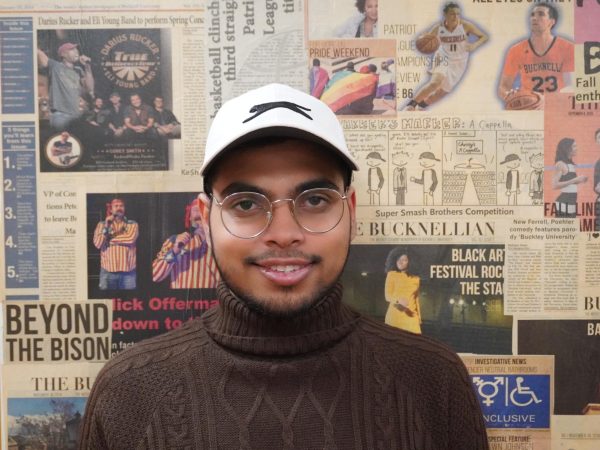On Tuesday, Nov. 12, Elizabeth Acevedo graced the UnHerd series with a reading that transcended the ordinary experience of an author session. Her presence, electric and deeply personal, radiated an energy that was impossible to ignore. It was not just a reading but an invitation to enter the world she had carefully crafted with words, a world shaped by her roots, her cultural history and her profound connection to the people she writes about. The audience, a mixture of students from Gettysburg and Bucknell, was quickly drawn in by her charisma, as she masterfully shifted between poetry and narrative, making the entire room feel like a shared space of reflection and inspiration.
Acevedo’s work, especially “The Poet X,” had already made an impact before this evening. Yet, nothing compared to hearing her read it aloud. There was a rhythm to her words that went beyond the written text; it was as if the verses had lived in her for years, each word a beat pulsing with her own life experiences. She spoke about her writing process with a raw honesty that revealed the heart of her craft: her commitment to writing for those who might never see themselves represented in mainstream literature. Her books weren’t just stories—they were lifelines for those who felt overlooked.
What struck me most deeply was her reflection on the power of writing stories rooted in one’s own culture and identity. For Acevedo, this wasn’t about showcasing her heritage but ensuring that her readers saw their own struggles, dreams and fears reflected on the page. She explained how she didn’t write for those already at the table but for those who were still on the outside looking in, hoping for a place where their voices could be heard. This dedication to inclusivity became the core of her literary mission and, in her words, one could hear the passion for amplifying silenced voices.
During the Q&A, Acevedo spoke candidly about the controversies her work had sparked, particularly the banning of “The Poet X” in certain areas. Her response was neither defensive nor dismissive but rather a thoughtful reflection on the wider social dynamics at play. She noted that the banning wasn’t a critique of her work but a reflection of the communities where her words felt too provocative, too challenging. There was something deeply powerful in her acknowledgment that her writing was both a mirror and a challenge to societal norms.
This event was more than just a chance to hear an author speak. It was an opportunity to witness the process of writing as a means of connection, transformation and resistance. Acevedo’s words echoed far beyond the walls of the room, leaving an indelible mark on all who were fortunate enough to attend. Her session was not only a testament to her extraordinary talent but to the unyielding power of literature to bridge divides and spark change.



















